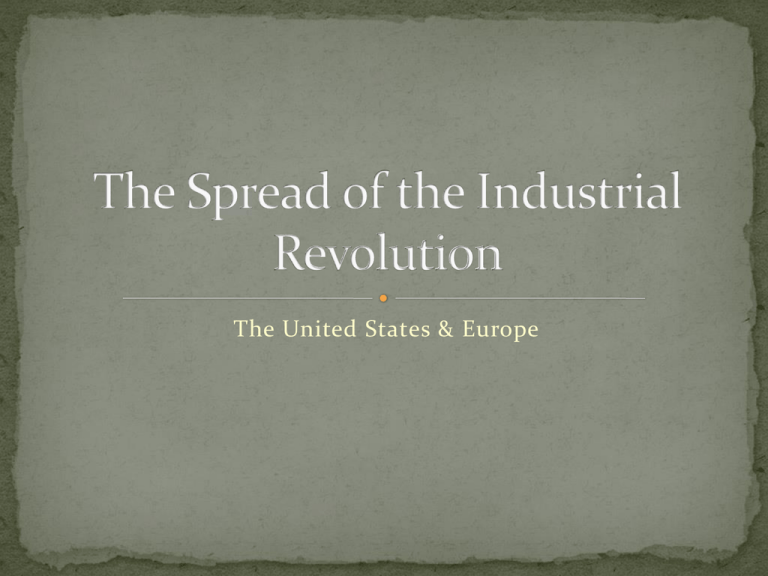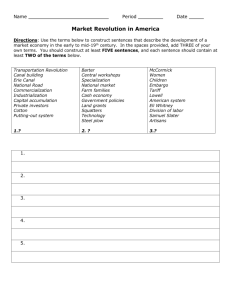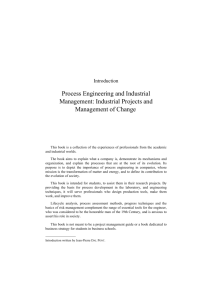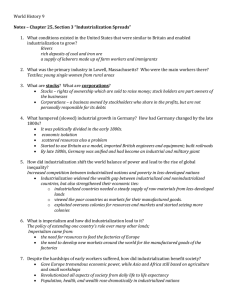The Spread of the Industrial Revolution
advertisement

The United States & Europe America had fast flowing rivers, coal, iron and workers for an Industrial Revolution of their own. Britain didn’t want the secrets of the industrial revolution to leave Britain so they outlawed machine makers leaving the country. Samuel Slater escaped to the U.S. and helped build factories from memory. The first factories were created for the textile industry in Rhode Island. Thousands of young women flocked to factory towns to earn money and gain more independence. Mills girls had to work 12 hours a day 6 days a week for a decent living. Textiles led the way but clothing and shoemaking soon followed into the factories. It wasn’t until after the Civil War that America became an industrial boom. In the late 1800’s large amounts of coal, iron & oil were discovered. The invention of the light bulb, telephone & and railroad expansion also added to the revolution. Turn to your neighbors and discuss the following questions for 4 minutes, then write your response. Why would Britain want to keep Industrialization a secret? Why might railroads be more important in the U.S. than Europe? Why would Slater escape to America to share his knowledge of industrialization? Building large businesses required a lot of money. To raise money entrepreneurs sold shares of the business called stock. Those who bought stock became part owners of the company. From these stock businesses came corporations. Stock holders of a corporation make money but are not responsible for its debt. Corporations were now starting to make large amounts of money while paying their workers low wages. In the early 1800’s Belgium became a major producer of textiles that would rival Britain due to Englishmen offering their knowledge. Thanks to its highly developed transport & communications the country profited from trade with less-developed neighbors such as Germany where there was a high demand for Belgian goods. In the mid 1800’s Germany began importing British equipment & engineers that soon industrialized the nation. The Industrial Revolution in Germany made German wealthy & modernize the country which led to unification of the country. France also became industrialized by 1830 but was more cautious in their approach than other countries. As a result France didn’t have the same social and economic problems that other nations suffered from industrialization. Industrialization: Made goods cheaper Created more jobs Increased the size of cities Created a need for Europe to work with other countries Industrialized countries need raw materials from poor countries to keep the factories going. Soon industrialized countries were looking around the world for new lands to get resources from. Discuss with your group for 5 minutes what you think the answer to the following questions are and then write a response. Why do you think some European countries did not participate in the Industrial Revolution? Which types of countries are more important: Industrialized countries making goods or nonindustrialized countries with resources? Why? How did the Industrial Revolution transform societies?




